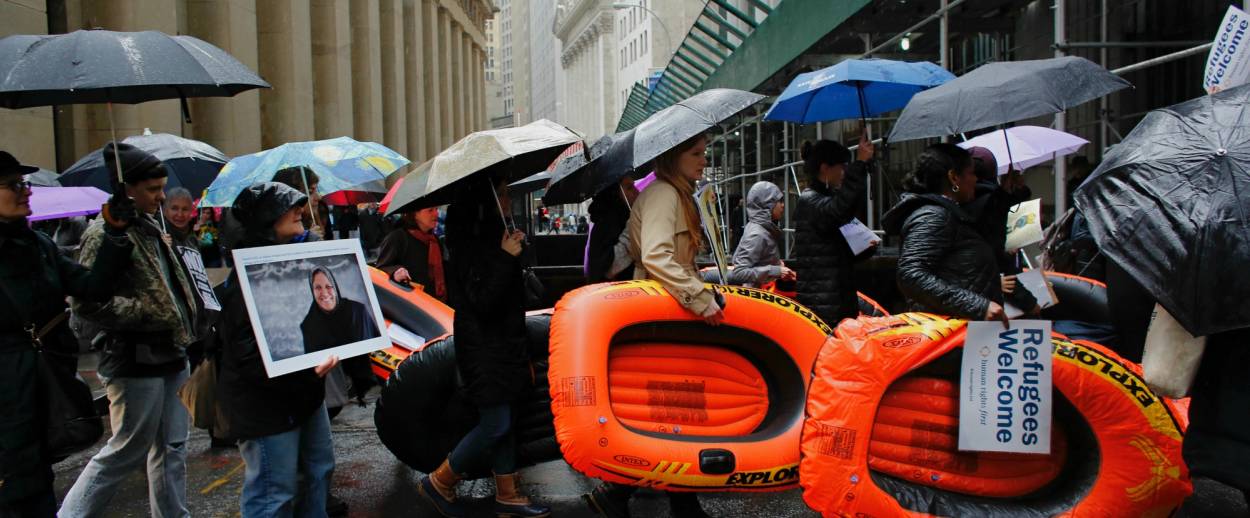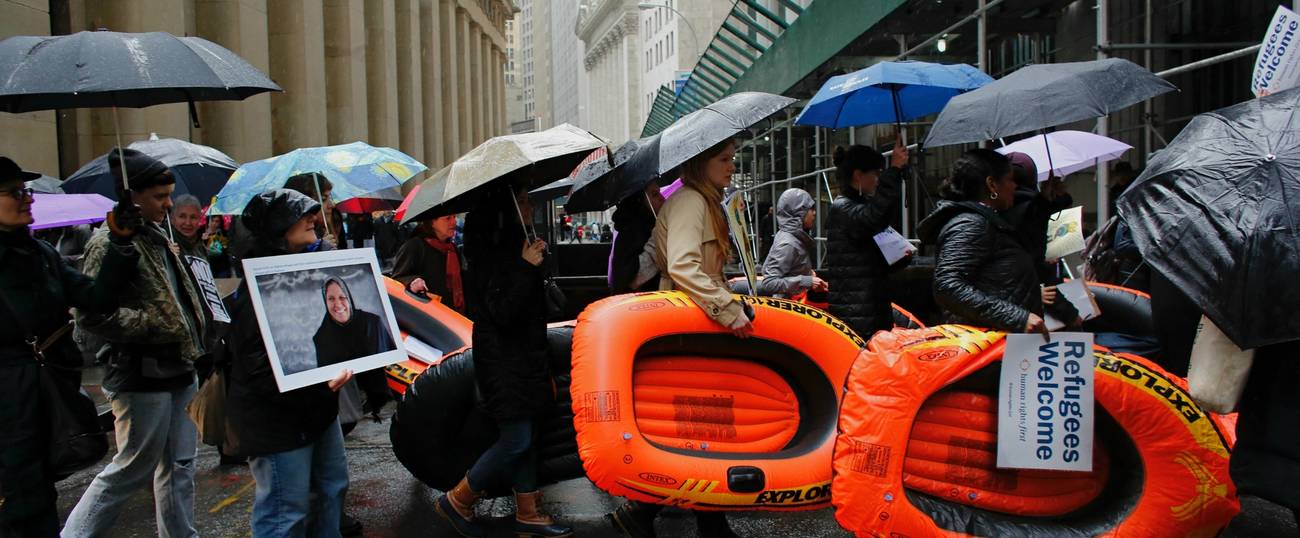Jewish Communities To Show Solidarity With Refugees by Holding Vigils in Commemoration of the ‘St. Louis’
Numerous gatherings are planned around the country on June 6




The debate over the entry of refugees into the U.S. rages on, and for good reason. Just this week, the State Department announced that it will “lift its restriction on the number of refugees allowed to enter the United States, after a steep decrease in arrivals in recent months amid President Trump’s efforts to limit entry,” reported The Los Angeles Times. This will ultimately raise the quota for resettlement from 900 to 1,500 refugees weekly.
Many members of the Jewish community are planning to show solidarity with refugees. Next week a series of vigils will take place around the country, from Scranton to St. Louis to San Francisco, to commemorate the doomed journey of the MS St. Louis, which sailed back to Europe on June 6, and stand in solidarity with refugees, many of whom are asylum seekers fleeing horrifying situations in their home countries. World Refugee Day, an event begun by the UN in 2001, occurs on June 20.
HIAS, a Jewish non-profit humanitarian aid organization, is urging Jewish communities around the country set up vigils next Tuesday to show solidarity with refugees, and providing guidance on how to do it. “We know the tragic consequences of denying safety to refugees,” said Rabbi Jennie Rosenn, the vice president of community engagement in a statement. “We know what can happen in a climate of fear, when our government confuses the perpetrators of violence with its victims. And we will not allow history to repeat itself.”
The history Rosenn speaks of relates in large part to the fated voyage of the MS St. Louis, which “has come to symbolize American indifference to the desperation of German Jews seeking safety from Nazi oppression,” wrote Tablet’s Barry Trachtenberg in February. He argues that that the actual history of the ship’s journey is far more more complicated.
According to the standard telling, a ship of German Jewish refugees arrived in the United States after being denied entry to Cuba, its initial destination. Rather than allow the passengers to enter the country and find safety from Nazi persecution, President Franklin D. Roosevelt cruelly turned the ship away. Out of options, the St. Louis returned to Europe and soon thereafter, its passengers, abandoned to their fate, died in the Holocaust.
This account, with occasional variations, is frequently evoked in discussions of how the United States responded to the Nazi Holocaust. Some see in the story of the St. Louis evidence of American apathy toward the plight of Hitler’s victims. Others have gone so far as to argue that it proves that the United States acquiesced with German plans to exterminate European Jewry. Some see proof of a particular American anti-Semitism while others evoke the St. Louis as an ethical lesson in order to advocate on behalf of refugees from subsequent conflicts.
Here is a listing of HIAS-sponsored St. Louis vigils around the U.S., including many in the D.C. area. The ADL is also co-sponsoring one in Los Angeles on June 11.
Previous: This Twitter Account Is Dedicated to the Passengers of the St. Louis—Refugees Who Were Ultimately Killed by Nazis
‘America Has Always Been at Its Greatest When We Have Welcomed Refugees’
Related: Did U.S. Anti-Immigrant Hysteria Doom the Passengers on the ‘St. Louis’? It’s Complicated.
Regina Spektor’s Immigrant Aid
A Soviet Drop-Out’s Journey to Freedom
Jonathan Zalman is a writer and teacher based in Brooklyn.